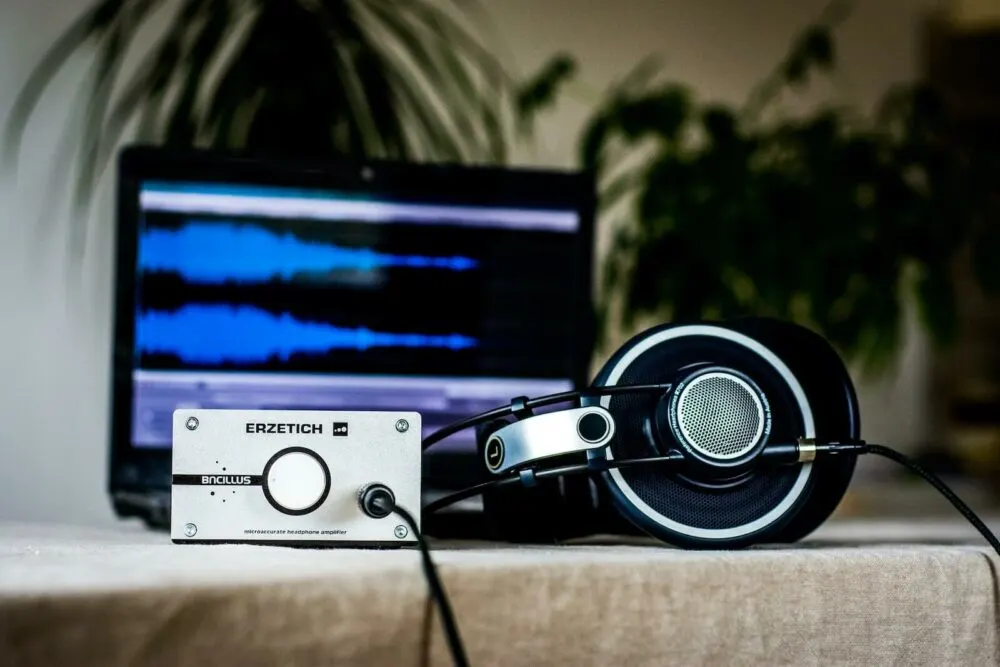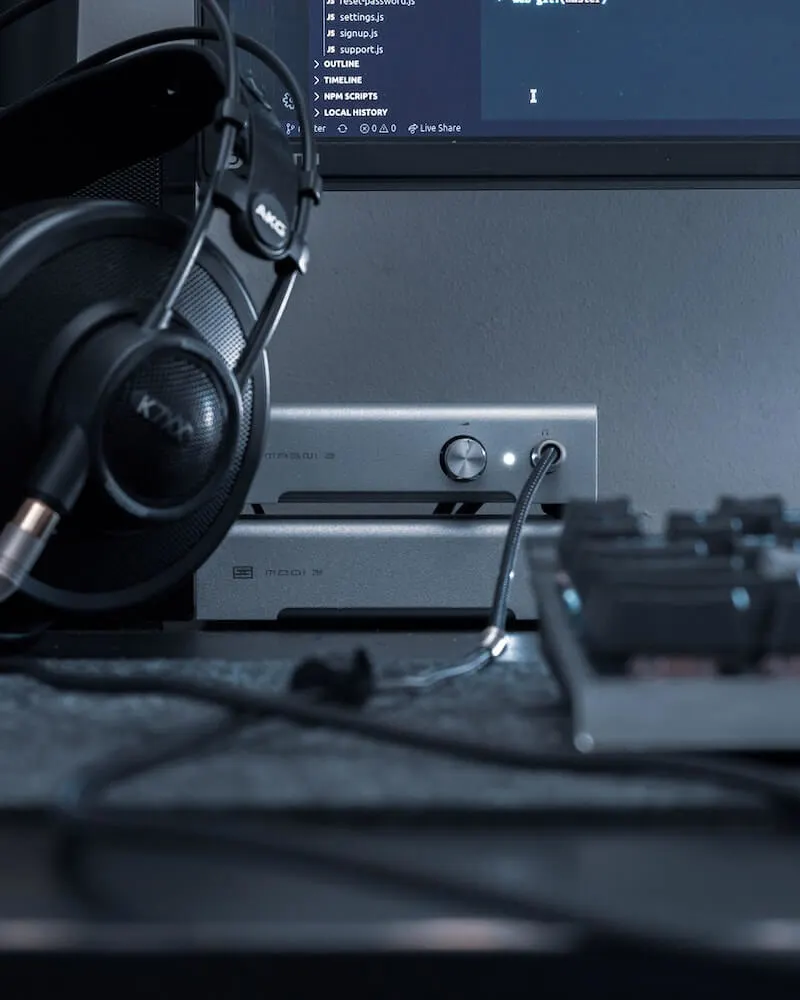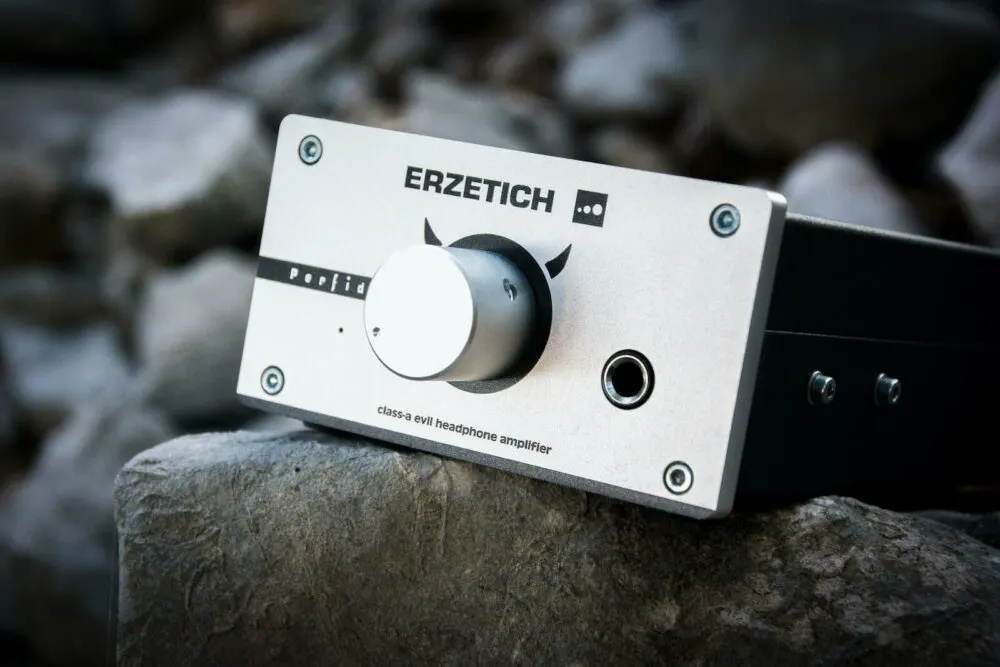Do I need a DAC? DACs, or digital-to-analog converters, are a hot topic in the audio world. More and more people are realizing the importance of getting the best sound quality possible from their audio equipment. But do you need one?
This article will discuss DACs, why DACs are necessary, when you might need one, and the difference between DACs and amps. So if you’re wondering whether or not you need a DAC, read on!
What is a DAC?
A DAC is a digital-to-analog converter. In other words, it converts digital data into an analog signal. This is important because most of our music today is stored in digital form (0s and 1s) on our computers, phones, etc.
To listen to this digital music, we need to convert it back into an analog signal that can be sent to our speakers or headphones. That’s where DACs come in.

Did you know everybody has DACs at home?
Before we get into external DACs, it’s essential to know that everybody already has a DAC in their home. In fact, you probably have several!
Your computer, phone, TV, and CD/DVD player all have DACs built-in. So do your Bluetooth speaker, Amazon Echo, and Google Home.
In other words, if you’re already listening to music on your phone or computer, you’re using a DAC!
But there’s a big difference between an integrated DAC in your TV/Phone vs. a high-quality DAC.
Why are DACs so important?
DACs are vital because they allow us to get the best sound quality possible from our audio equipment. The better the quality of the DAC and the software it comes with, the better the sound quality will be.
In old desktop computers, high-quality DACs came as PCIe cards (sound cards). You had to open your computer chassis and install it to get it to work. Nowadays, most DACs come in the form of external devices you can connect to your computer/laptop via USB. DACs are portable, and some DACs also have fantastic designs to show off in your desk setup.

DACs output high-quality sound because they have a higher bit-depth and sample rate than integrated DACs. A higher bit-depth means that the DAC can reproduce a broader range of sound frequencies, giving you a more detailed and accurate sound. A higher sample rate means that the DAC can reproduce a broader range of sounds, giving you a smoother and more realistic sound.
Also, since dedicated DACs come with their electronic circuit, isolated from the rest of your computer, they tend to produce less noise and interference than integrated DACs. This results in a cleaner and more accurate sound.
When do I need a DAC?
You might need an external DAC if you’re using high-end audio equipment or looking to get the best sound quality possible from your music collection. You probably don’t need one if you’re using your computer’s built-in speakers or headphones.
Many people think of buying DACs after spending a decent amount on a pair of speakers or a good headphone set. DACs can also be popular for gamers, streamers, and content creators as they can drastically improve the audio quality outputted to their headsets or capture devices.
The source files are important too!
It’s important to know that the quality of your DAC will only be as good as the quality of your source files (music, games, movies, etc.). If you’re using low-quality MP3s, you’re not getting high-quality sound out of your DAC, no matter how good.
A decent MP3 bit rate usually is 320Kbps (Spotify Premium uses this format). A DAC won’t make a difference if you’re playing 128Kbps or lower-quality files.
So if you’re serious about getting the best sound quality possible, invest in high-quality lossless source files (like WAV or FLAC) and a good DAC.
What’s the difference between a DAC and an amp?
Many people confuse DACs with amps, but they are two very different things. DACs convert digital signals into analog signals. Amps take these analog signals and amplify them to be played through speakers or headphones.

Most DACs already have built-in amplifiers, so you don’t need to worry about buying a separate amp. However, if you’re using high-end equipment that requires a lot of power, you might need an external amplifier, even if you use your integrated DAC.
Do I need a DAC if I’m using wireless headphones or speakers?
If you’re using Bluetooth headphones or speakers, you don’t technically need a DAC since the signal is already being converted into an analog signal by the Bluetooth transmitter.
In that case, the DAC is already integrated into your headphones/speakers, and you can’t replace it. This is an important point because many people use wireless headphones nowadays, and they think they could use a dedicated DAC.
The dedicated DAC would only be used if you’re using your headphones via wire, and even then, many times, the signal still gets processed by the internal headphone DAC. This is pointless and adds a second analog-to-digital conversion on the way.
What is a good bitrate for audio files?
Determining the ideal bitrate for audio files depends on various factors. Generally, a bitrate of 320kbps is considered sufficient for most applications, assuming you are listening to 16-bit files. Notably, this is the bitrate utilized by platforms such as Amazon for their music store. In truth, the majority of people cannot discern any noticeable difference beyond this level.
For archival purposes, some individuals prefer using FLAC files, which offer lossless compression. However, when it comes to mobile listening, opting for a 320kbps MP3 or Opus file is perfectly suitable. Over the past two decades, audio compression technology has made significant advancements, enabling newer compression standards to achieve superior results with smaller file sizes. Consequently, a lower bitrate no longer automatically implies poor audio quality, although it is not an ideal indicator either.
It is important to consider the context in which you will be listening to the audio files as well as your personal preferences. By evaluating these factors, you can make an informed decision regarding the appropriate bitrate that strikes a balance between file size and audio quality.
What governs the theoretical limits of the dynamic range of an audio file?
The theoretical limits of the dynamic range of an audio file are primarily governed by the bit depth. The bit depth determines the amount of information that is contained within each sample of the audio file. Essentially, a sample represents a moment in time within the audio file and holds important data.
Typically, the bit depth determines the range of possible output values for each sample. In simpler terms, the greater the bit depth, the wider the range of potential note volumes that can be achieved. This means that a higher bit depth allows for more detailed and nuanced representation of the audio’s dynamics.
By increasing the bit depth, audio files have the potential to accurately capture a wider range of volume levels, allowing for more refined and dynamic playback. On the other hand, lower bit depths may restrict the dynamic range, resulting in less precision and detail in the audio representation.
In summary, the bit depth plays a crucial role in governing the theoretical limits of the dynamic range in an audio file. Higher bit depths provide more potential output values, allowing for a wider range of possible note volumes and ultimately leading to more accurate and refined audio representation.
What is aliasing?
Aliasing is a phenomenon that occurs when a signal is sampled at a rate that is insufficient to accurately represent its true waveform. It arises when there are fewer than two samples per cycle of the signal being sampled. The concept of aliasing is particularly relevant during analog to digital conversion processes in an ADC or when digital downsampling is performed.
When a signal is sampled at a frequency below the Nyquist rate, which is essentially twice the highest frequency component in the signal, aliasing occurs. This results in errors in the signal spectrum, where certain frequencies are misrepresented or distorted. These errors can lead to a misinterpretation of the sampled data points.
It is important to note that aliasing does not occur at the output of a digital to analog converter (DAC). However, without an appropriate lowpass reconstruction filter or interpolation filter at the output of the DAC, a phenomenon known as high frequency mirroring can happen. This causes images or spectrums of the original signal to repeat at multiples of the DAC output frequency.
These image spectrums, if not effectively filtered out, can introduce intermodulation distortion into the audible signal. This means that undesired components or frequencies are generated within the signal, potentially affecting its quality and leading to perceptible distortion.
Thus, aliasing is a result of inadequate sampling rates, leading to errors in signal spectrum representation. Proper filtering techniques are crucial to mitigate the effects of aliasing and ensure the accurate reproduction of the original signal.
What is jitter?
Jitter refers to a phenomenon that occurs when the timing of a digital-to-analog converter (DAC) is not as precise as it should be. In simple terms, it means that the intervals between converting each sample are not consistent. This lack of consistency can introduce inaccuracies in the playback waveform, resulting in slight pitch errors.
The primary cause of jitter is an imprecise clock in the DAC, which controls the conversion of each sample. When the clock timing is not exactly aligned with the sample points, the conversion may happen too early or too late, leading to irregular spacing between the converted samples.
The impact of jitter is typically more noticeable when reproducing high-pitched notes. Since higher notes have shorter wavelengths, any slight pitch error becomes more significant. However, it is important to note that modern DAC units have significantly improved in their precision, minimizing the occurrence of jitter-related issues. Furthermore, the human hearing range does not reach the maximum limits of DAC file decoding, which means that the potential errors introduced by jitter at very high frequencies are less likely to be perceived by most listeners.
Overall, while jitter was once a more common concern, technological advancements have made it a relatively rare issue in today’s DAC units.
Do I need a DAC? The bottom line
You don’t need a DAC if you’re using your computer’s built-in speakers or non-expensive headphones. If you want to improve your music collection’s sound quality or get the best sound possible for gaming and content creation, then a DAC can be a valuable addition to your setup.
Please make sure you have high-quality source files (like WAV or FLAC) and a decent pair of headphones/speakers to get the most out of it.
Most people can’t hear the difference between 128 kbps and 320 kbps music. If you want to improve your sound experience, changing your speakers or headphones would be the first step in that direction, as it’s easier to appreciate the difference.
Let us know if you have any other questions about DACs in the comments below. We’ll be happy to help! Thanks for reading.
dam dave
Tuesday 1st of November 2022
analog was here first. then digital came along to help transfer data faster. am i going in right direction? why didn't someone invent a machine to combine analog and digital together? so the people of earth wouldn't have to buy machines to convert digital to analog or dacs. was it all about money? or a lab technician got a iha moment of riches beyond his dreams, and didn't follow thru the process. that is why we need dacs and other equipment to have excellent sound for our hard earned money. am i close?